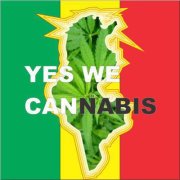
Legalize It was an album by the Jamaican and pro-marijuana consumption, Peter Tosh, in 1976. Now Legalize It! is a social media campaign for the legalization of marijuana in Tunisia.
Many Tunisian Facebook users set an event [fr] on Facebook to meet up in front of the headquarters of the Parliament in Bardo, on Saturday February 18, 2012, to demand stopping legal prosecution for smoking marijuana in the country. To date, more than 4,600 Facebook users have signed up to attend the ‘event,’ to which another 25,400 have been invited.
The Facebook page is updated daily with dozens of wall posts that support the consumption of weed. Support photographs, scientific articles to argue in favour of the benefits of marijuana and videos are shared and “liked” by users every day.
Many Tunisians are aware of these scientific facts. Their only comment is “The world is upside down!” Satirical comments are also not strange to social media, where people denounce the harsh legal punishments imposed on the consumption of marijuana in Tunisia. Legal punishment for its consumption can go up to 1 year in prison and a 1000-Dinar ($750) fine.

On Twitter, users also shared their opinions about the legalization of weed. @BoukornineBlog tweeted [fr]:
@BoukornineBlog: C'est tout de même insensé d'interdire la fumette dans un pays qui part en fumée. #LegalizeIt #QuelGachpit fb.me/1JEUBEuJ2
Another video was uploaded on YouTube not so long ago to condemn this legal punishment. The video, in Arabic and French, has so far been viewed more than 7,300 times:
In the video, uploaded by bassethkimi, the person being interviewed argues that marijuana has no proven negative effects on its consumer. He also argues that the legal punishment is too harsh for young Tunisians who often want to try joints but then find themselves incarcerated for one year or longer.
The video introduction reads [ar]:

The interviewee also says:
Bring Ben Ali back and try him for drugs circulation and then ask me for a urinal test.
Urinal tests in Tunisia are arbitrary. Policemen may hold anyone in the street and ask them for urinal test without their consent. And since marijuana and other herbal substances remain in human blood stream for 40 long days, it is easy to incarcerate youngsters and accuse and try them for using drugs.
On Facebook, users are serious about their demands. Another Facebook page [fr] was even created for the sake of informing social media users about international law concerning the use of marijuana. The page states the demands of the protest:
Principales revendications du #18fev :
1) Abolition de l'analyse bilogique arbitraire (car illégale et anti-constitutionnelle). 2) Abolition de la peine de 1 an de prison et 1000 dinars d'amende (car contraire à la déclaration universelle des droits de l'homme et plusieurs lois tunisiennes dont la constitution).
3) Maintenir l'interdiction de la consommation dans les endroits publics sous peine d'amende à petit montant (pour contourner la corruption).
4) Restructurer la brigade des stups, concentrer la lutte anti-drogue aux frontières et au démantèlement des réseaux de blanchiment d'argent associés.
5) Création d'un observatoire national de toxicomanie afin de prévenir les addictions et relever des statistiques capables de mieux cener, analyser et remédier au fléau.
6) Favoriser le tissu associatif dans ce sens, promouvoir l'art et les activités sportives en plein air (street).
1) Abolition of arbitrary biologic analysis (since it's illegal and unconstitutional).
2) Abolition of the of the one-year jail sentence and the 1,000-dinar fine (since it opposes the Universal Declaration of the Human Rights and other Tunisian laws).
3) Maintain the ban on consumption in public places, that shall be prosecuted by small fines (to curtail corruption).
4) Re-establish an anti-narcotics brigade, concentrate them on borders to intercept money laundering gangs.
5) The creation of a national observatory of addiction in order to prevent new cases and pick up useful statistics to analyze and fix the situation.
6) Help more associations to work around this matter, promote arts and sport activities in public places (street).
Bloggers also had their opinion about the legalization of marijuana in Tunisia. Mehdi Ayadi, web editor at Tunisian radio Mosaique FM, writes in an article [fr] on nawaat.org that legalization of weed could be beneficial to all parties:
Mais bien plus, soutiennent d’autres études scientifiques qui mettent en avant l’effet thérapeutique d’une utilisation modérée et à petites doses de ces drogues tel que le traitement des migraines, allégement des nausées et des douleurs liées à la chimiothérapie, empêchement de crises d’épilepsie, maitrise de la paralysie en cas de sclérose en plaque…
Mehdi also states how the legalization of marijuana could be beneficial for governmental authorities too:
Une légalisation partielle et contrôlée par l’Etat, peut contribuer à mieux lutter contre les trafics et les dealers.







7 comments
The most important aspect however is that the DEREGULATION OF HEMP, as I prefer to call it, could create thousands of jobs in Tunisia. Hemp will grow in the arid parts of the Tunisian hinterland where hardly anything else will grow. Hemp can be the basis for a gigantic wood production, followed by wood processing, paper processing, bio-diesel, hemp based plastics etc. I can see gigantic wood and furniture production plants that will produce for Ikea and other global corporations. Tunisia could quickly go from being a wood importer to becoming a wood and wood products exporter!
Where did you get your sources from? Weed can make you feel anxiety, paranoid and panic. It can make asthma worse and cause wheezing in non-asthma suffers. You could get schizophrenia from it. You can get cancer as a lot of people mix it with tobacco. Can decrease fertility as well. It banned for a reason.
Read more at talktofrank